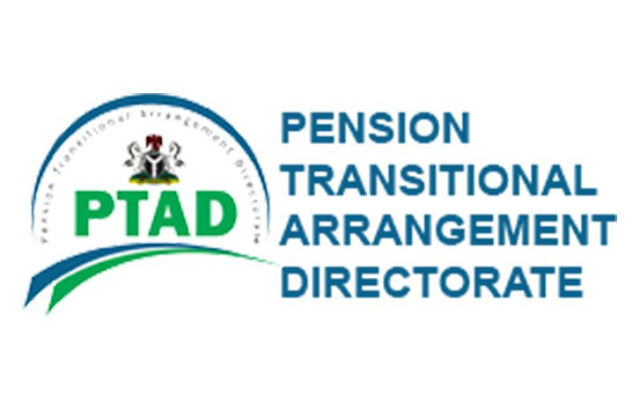In a significant move to enhance the welfare of pensioners across Nigeria, the Federal Government has launched a revised Service Charter for the Pension Transitional Arrangement Directorate (PTAD). The updated charter is designed to streamline pension administration processes, ensuring faster, fairer, and more transparent pension payments for retirees under the Defined Benefits Scheme (DBS). The launch, which took place in Abuja, underscores the government’s commitment to addressing longstanding challenges in the pension sector and improving the quality of life for Nigeria’s senior citizens.
The event, attended by key stakeholders in the pension industry, government officials, and representatives of pensioners’ associations, marked a pivotal moment in Nigeria’s pension reform journey. The revised charter reflects PTAD’s renewed focus on leveraging technology, enhancing accountability, and prioritizing the needs of pensioners. According to PTAD’s Executive Secretary, Dr. Chioma Ejikeme, the updated charter is a testament to the agency’s dedication to delivering efficient and equitable services to pensioners, many of whom have faced delays, bureaucratic hurdles, and inefficiencies in accessing their pensions.
Background: The Evolution of Pension Administration in Nigeria
To fully appreciate the significance of the revised PTAD Service Charter, it is essential to understand the historical context of pension administration in Nigeria. The pension system in Nigeria has undergone significant reforms over the past two decades, driven by the need to address systemic inefficiencies, corruption, and mismanagement that plagued the sector for years. Prior to the introduction of the Contributory Pension Scheme (CPS) in 2004, Nigeria operated the Defined Benefits Scheme, where retirees were entitled to pensions based on their years of service and salary levels.
The DBS, while well-intentioned, was marred by challenges such as delayed payments, inadequate funding, and fraudulent practices. Many pensioners endured years of hardship, with some passing away before receiving their rightful benefits. The establishment of PTAD in 2013, under the Pension Reform Act, was a direct response to these challenges. PTAD was tasked with managing pensions for retirees under the DBS, particularly those from the public sector, including civil servants, parastatals, and other government agencies.
Since its inception, PTAD has made strides in addressing pension arrears, verifying pensioners, and improving the overall pension administration process. However, persistent issues such as manual processes, inadequate data management, and complaints about delayed payments have continued to pose challenges. The revised Service Charter is a strategic step toward addressing these issues and aligning PTAD’s operations with global best practices in pension administration.
Key Features of the Revised PTAD Service Charter
The revised PTAD Service Charter is a comprehensive document that outlines the agency’s commitment to delivering high-quality services to pensioners. It serves as a roadmap for PTAD’s operations, setting clear standards for service delivery, accountability, and responsiveness. The charter is built on several key pillars, which were highlighted during the launch event in Abuja:
Faster Pension Payments: One of the primary objectives of the revised charter is to reduce the time it takes for pensioners to receive their payments. The charter introduces streamlined processes, including the adoption of digital tools to automate payment systems. By leveraging technology, PTAD aims to eliminate bottlenecks that have historically delayed pension disbursements.
Transparency and Accountability: The charter emphasizes PTAD’s commitment to transparency in its operations. This includes providing pensioners with clear information about their entitlements, payment schedules, and the status of their pension files. The charter also establishes mechanisms for pensioners to lodge complaints and receive prompt resolutions.
Fairness in Pension Administration: Ensuring fairness in pension payments is a cornerstone of the revised charter. PTAD has pledged to eliminate disparities in pension payments, ensuring that all pensioners receive their rightful benefits without discrimination. This is particularly significant for pensioners from parastatals and other non-core civil service sectors, who have often faced inequities in the past.
Improved Stakeholder Engagement: The charter recognizes the importance of collaboration with stakeholders, including pensioners’ associations, government agencies, and financial institutions. PTAD has committed to regular consultations with these groups to ensure that its policies and processes reflect the needs and expectations of pensioners.
Digital Transformation: A key highlight of the revised charter is its focus on digital transformation. PTAD has introduced initiatives such as the “I Am Alive” digital verification platform, which allows pensioners to confirm their status remotely, reducing the need for physical visits to PTAD offices. This is particularly beneficial for elderly pensioners who may face mobility challenges.
The Launch Event: A Commitment to Pensioners’ Welfare
The launch of the revised Service Charter was a high-profile event that brought together stakeholders from across the pension ecosystem. Held at a prestigious venue in Abuja, the event was graced by senior government officials, including representatives from the Ministry of Finance, Budget, and National Planning, as well as members of the National Assembly. Pensioners’ associations, such as the Nigeria Union of Pensioners (NUP), were also well-represented, underscoring the collaborative nature of the initiative.
In her keynote address, Dr. Chioma Ejikeme, PTAD’s Executive Secretary, reiterated the agency’s commitment to transforming the pension administration landscape in Nigeria. She emphasized that the revised charter was not merely a document but a “social contract” between PTAD and Nigeria’s pensioners. “Our pensioners have served this nation with dedication and sacrifice. It is our duty to ensure that they live their retirement years with dignity and financial security,” she stated.
Dr. Ejikeme highlighted the challenges that PTAD has faced in recent years, including inherited pension liabilities, incomplete records, and logistical constraints. She noted that the revised charter was developed after extensive consultations with pensioners, stakeholders, and experts in pension administration. The document, she explained, is a dynamic framework that will evolve in response to emerging challenges and technological advancements.
The Minister of Finance, Budget, and National Planning, represented by a senior official, commended PTAD for its efforts in reforming the pension sector. The minister’s representative emphasized the Federal Government’s broader commitment to social welfare programs, including initiatives to support vulnerable populations such as pensioners. The launch of the revised charter, the official noted, aligns with the government’s agenda to promote inclusive economic growth and social justice.
Implications for Pensioners
The revised PTAD Service Charter holds significant implications for Nigeria’s pensioners, particularly those under the Defined Benefits Scheme. For many retirees, the charter represents a beacon of hope in addressing longstanding grievances related to pension payments. Below are some of the key ways in which the charter is expected to impact pensioners:
Reduced Delays in Pension Payments: One of the most pressing concerns for pensioners has been the delay in receiving their monthly pensions. The charter’s emphasis on automation and streamlined processes is expected to significantly reduce payment delays, ensuring that pensioners receive their funds promptly.
Enhanced Accessibility: The introduction of digital tools, such as the “I Am Alive” platform, makes it easier for pensioners to interact with PTAD without the need for physical visits. This is particularly beneficial for pensioners in remote areas or those with health challenges.
Greater Transparency: By providing clear information about pension entitlements and payment schedules, the charter empowers pensioners to hold PTAD accountable. This transparency is expected to build trust between pensioners and the agency.
Addressing Pension Arrears: PTAD has inherited significant pension arrears, some dating back decades. The revised charter includes a commitment to systematically address these arrears, ensuring that pensioners receive their outstanding payments in a timely manner.
Improved Quality of Life: Ultimately, the revised charter aims to improve the quality of life for pensioners by ensuring that they receive their pensions promptly and fairly. This financial stability is critical for retirees, many of whom rely on their pensions as their primary source of income.
Challenges and the Path Forward
While the revised PTAD Service Charter has been widely praised, its successful implementation will depend on several factors. The pension sector in Nigeria is complex, with challenges ranging from inadequate funding to logistical constraints and resistance to change. Below are some of the key challenges that PTAD must address to ensure the charter’s success:
Funding Constraints: Pension payments require significant financial resources, and inadequate funding has been a persistent challenge in the sector. PTAD will need sustained budgetary support from the Federal Government to meet its commitments under the charter.
Technological Infrastructure: While the charter emphasizes digital transformation, Nigeria’s technological infrastructure remains uneven, particularly in rural areas. PTAD must invest in robust systems and provide training to ensure that pensioners can access digital platforms.
Stakeholder Buy-In: The success of the charter depends on the cooperation of various stakeholders, including government agencies, financial institutions, and pensioners’ associations. PTAD must maintain open lines of communication to ensure that all parties are aligned with the charter’s objectives.
Addressing Legacy Issues: The pension sector is burdened by legacy issues such as incomplete records and unresolved arrears. PTAD will need to continue its efforts to clean up pension databases and resolve outstanding liabilities.
Despite these challenges, the revised charter represents a significant step forward in Nigeria’s pension reform journey. By prioritizing efficiency, transparency, and fairness, PTAD is positioning itself as a model for pension administration in Africa. The agency’s focus on digital transformation is particularly noteworthy, as it aligns with global trends in pension management and positions Nigeria to leverage technology for social good.
Broader Context: Pension Reforms in Nigeria
The launch of the revised PTAD Service Charter comes at a time when Nigeria is grappling with broader economic and social challenges. With inflation rates fluctuating and the cost of living rising, pensioners are among the most vulnerable segments of the population. The Federal Government’s commitment to improving pension administration reflects its recognition of the need to protect retirees from economic hardship.
The charter also aligns with Nigeria’s broader pension reform agenda, which includes efforts to strengthen the Contributory Pension Scheme and expand pension coverage to the informal sector. By addressing the needs of DBS pensioners, PTAD is contributing to a more inclusive pension system that ensures financial security for all retirees.
Furthermore, the charter’s emphasis on transparency and accountability resonates with the government’s anti-corruption agenda. By reducing opportunities for fraud and mismanagement in pension administration, PTAD is helping to restore public trust in government institutions.
Conclusion
The launch of the revised PTAD Service Charter marks a significant milestone in Nigeria’s pension reform journey. By committing to faster, fairer, and more transparent pension payments, PTAD is addressing the needs of millions of retirees who have dedicated their lives to serving the nation. The charter’s focus on digital transformation, stakeholder engagement, and accountability sets a new standard for pension administration in Nigeria.
As PTAD moves forward with implementing the charter, it will need to navigate challenges such as funding constraints and technological limitations. However, with sustained government support and collaboration with stakeholders, the agency is well-positioned to deliver on its promises. For Nigeria’s pensioners, the revised charter offers hope for a future where their contributions are recognized, and their financial security is assured.
The launch event in Abuja was more than a ceremonial occasion; it was a reaffirmation of the Federal Government’s commitment to the welfare of its senior citizens. As Dr. Chioma Ejikeme aptly stated, “Pensioners are not just beneficiaries; they are our heroes, and we owe them a debt of gratitude.” With the revised PTAD Service Charter, Nigeria is taking a bold step toward honoring that debt and ensuring that its pensioners can live their retirement years with dignity and respect.






